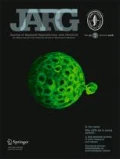Dear Editor:
We read with interest the study by Goldman et al. that offered a counseling tool aiming to determine the expected out-of-pocket costs of IVF with preimplantation genetic testing for aneuploidy (PGT-A) to attain a 50%, 75%, or 90% likelihood of a euploid blastocyst based on individual age and AMH [1]. They estimated that the cost to attain a 50% likelihood of a euploid blastocyst ranges from approximately $15,000 U.S. dollars (USD) for younger women with higher AMH values (≥ 2 ng/mL) to > $150,000 for the oldest women (44 years) with the lowest AMH values (< 0.1 ng/mL). Moreover, a typical patient (36–37 years, AMH 2.5 ng/mL) should expect to spend ~ $30,000 for a 90% likelihood of attaining a euploid embryo.
We were pleased to realize that in this study, the authors confirmed several previous theoretical analyses that went unnoticed [2, 3]. Lacking properly conducted prospective clinical trials (RCT), we published a theoretical model for PGT-A, relying on evidence-based data in the literature on blastulation and aneuploidy rates, the rate of mosaicism, technical errors and implantation/live birth rates of PGT-A, and non-PGT-A cycles at cleavage and blastocyst stage [2]. This hypothetical RCT clearly demonstrated superiority of non-PGT-A over PGT-A cycles for cumulative live birth rates (ranges, 18.2–50.0% vs. 7.6–12.6%).
Another study that went unnoticed is the theoretical model, published by Scriven [3], aiming to explore the cost-effectiveness of aneuploidy screening in a UK setting. The study demonstrated that adding aneuploidy screening to IVF treatment for women under the age of 40 years was unlikely to be beneficial for most women. Moreover, in the context of single embryo transfer for women under the age of 40 years, Scriven has shown that adding PGT-A universally to a first-treatment cycle is likely to be an expensive way of reducing the risk of clinical miscarriage and shortening treatment time without a substantial reduction in the cost of genetic testing.
In accordance with the recently published ASRM committee opinion [4], we do believe that until the proper, non-hypothetical RCT on the efficacy of this procedure will appear, PGT-A should be offered only under study conditions, and with appropriate informed consents.
References
Goldman RH, Racowsky C, Farland LV, Fox JH, Munné S, Ribustello L, et al. The cost of a euploid embryo identified from preimplantation genetic testing for aneuploidy (PGT-A): a counseling tool. J Assist Reprod Genet. 2018; https://doi.org/10.1007/s10815-018-1275-5.
Orvieto R. Preimplantation genetic screening- the required RCT that has not yet been carried out. Reprod Biol Endocrinol. 2016;14:35.
Scriven PN. Towards a better understanding of preimplantation genetic screening for aneuploidy: insights from a virtual trial for women under the age of 40 when transferring embryos one at a time. Reprod Biol Endocrinol. 2017;15:49.
ASRM- Practice Committees. The use of preimplantation genetic testing for aneuploidy (PGT-A): a committee opinion. Fertil Steril. 2018;109(3):429–36.
Author information
Authors and Affiliations
Corresponding author
Rights and permissions
About this article
Cite this article
Orvieto, R. The cost of a euploid embryo identified from preimplantation genetic testing for aneuploidy (PGT-A). J Assist Reprod Genet 35, 2077 (2018). https://doi.org/10.1007/s10815-018-1294-2
Received:
Accepted:
Published:
Issue Date:
DOI: https://doi.org/10.1007/s10815-018-1294-2

